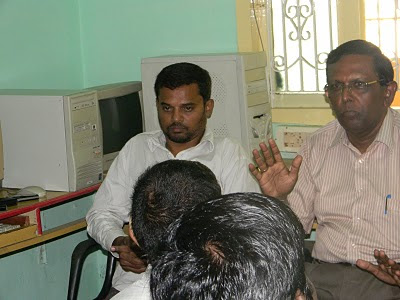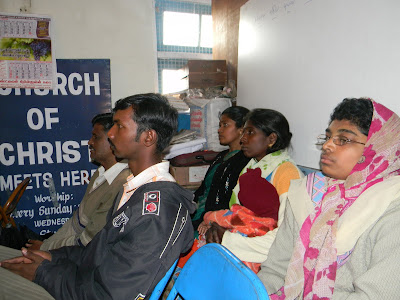 Differently-abled persons in Coimbatore getting trained in cleaning small plastic items of protrusions before taking up work.
Differently-abled persons in Coimbatore getting trained in cleaning small plastic items of protrusions before taking up work.Differently-abled people in and around the city may soon get comfortable work and earn a few thousand rupees, if the plan devised by Caliber were to fructify. The organisation, by and for the challenged people, is talking to industries to involve themselves in certain areas that could be outsourced.
Surya Nagappan of Caliber says three plastic industries have come forward to provide work. On a trial basis, the industries have trained a little over 10 challenged persons to do the job, provided the raw materials at their door steps and also started collecting the finished items.
Mr. Nagappan says the challenged men and women, who have rented two houses for the purpose, clean small plastic items of protrusions, assemble light-weight parts and also carry out quality inspection. The industries pay Rs. 40 or Rs. 50 for every 1,000 items cleaned, assembled or inspected.
“The money works out to between Rs. 4,000 and Rs. 5,000 a month a person,” he says and points out that the best part is that the challenged people get to work at their place of stay, avoiding the trouble taken to commute to work.
Most of the persons who work are orthopedically challenged. A hearing impaired woman has also come forward to work. Mr. Nagappan says the challenge is not in securing work orders from industries but finding and assembling challenged people at a place. “They do not come forward to work and if at all they come, they do not remain for long,” he rues.
District Disabled Rehabilitation Officer C. Jasmine echoes the view. “There seems to be a mental block in most physically challenged persons to come out of their residence to work.” She says her office will conduct an awareness programme to help people looking for a job get one.
Representative of an industry, on conditions of anonymity, says industries are willing to outsource provided it helps cut cost. “So far the going has been good. The quality of work too is more than satisfactory,” he says.
Mr. Nagappan says the challenged people are willing to take up cleaning, assembling and quality control work. He can be reached at 99445-56168.

















